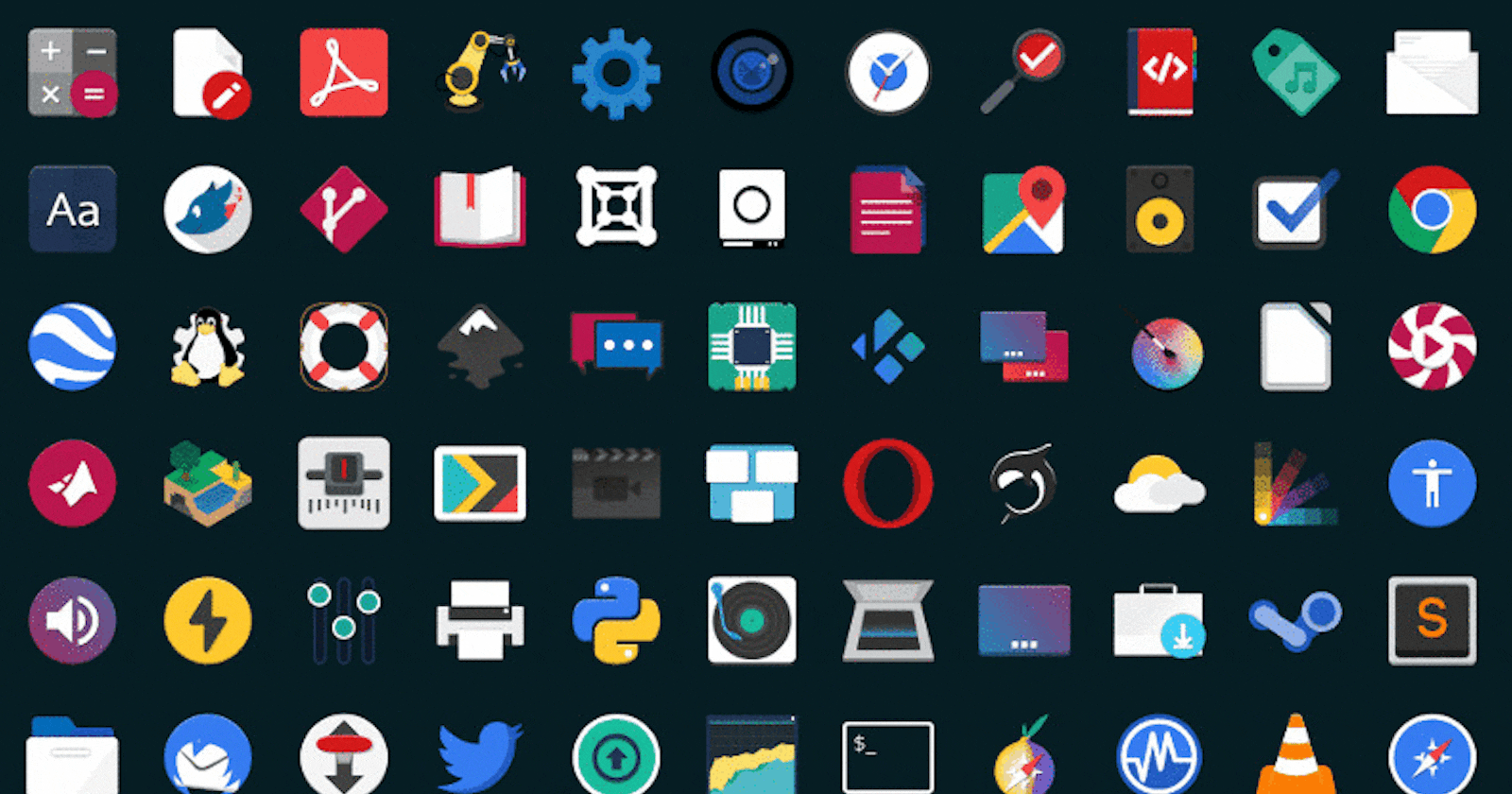
Why Linux is widely used in software industry?..
Relevant to switch to Linux for beginner's
Introduction
Hello Everyone, Recently I switched from Windows to Linux, So this blog is about why Linux is the most loved Operating System for developers and software Organizations.
In a world driven by software innovation, the choice of an operating system can be a pivotal decision for developers and businesses alike. Enter Linux – a resilient, open-source powerhouse that has long been a corner. the tone of the software industry. In this blog post, I will drive you through the miracles of Linux and why it's the optimal choice for software endeavors. Whether you're a seasoned developer or a curious tech enthusiast, Linux has something to offer. So, fasten your seatbelts as we delve into the world of Linux and uncover the reasons why it's the operating system of choice for those in the software industry.
Imagine having an operating system that empowers you with unparalleled flexibility, cost-effectiveness, and security while fostering a thriving community of like-minded individuals. Linux is precisely that, and its advantages extend far beyond these introductory promises. Whether you're looking to save on expenses, customize your development environment, or harness the power of open-source collaboration, Linux has you covered. In the next sections, we'll journey through the advantages that make Linux a compelling choice for software professionals
Why did I Switch to Linux
I saw Mr.Robot on Amazon Prime, And then just said "I need to be this cool".So I tried Linux and it helped me a lot in my "learning Software development Adventure". Linux Became the ultimate tool in my backpack.
“Unix has retarded OS research by 10 years and Linux has retarded it by 20.”
This quote from Dennis Ritchie suggests that these operating systems, while widely used and successful, may have hindered or slowed down the progress of research in this area. I do feel that too, but we will discuss it in some other blog.
Linux overall has many advantages, I will give an overview of the textbook advantages of Linux.
Advantages of Using Linux :
Let's dive deeper into each of these key points:
1. Open Source: Open-source software, like Linux, is built on a philosophy of collaboration and transparency. It means that the source code is freely accessible, modifiable, and redistributable by anyone. This open nature encourages a global community of developers to work together, resulting in continuous improvements, bug fixes, and innovation. For the software industry, open source means reduced development costs, faster bug resolution, and the ability to build upon existing projects without reinventing the wheel.
2. Cost-Effective: One of Linux's standout features is its cost-effectiveness. It's free to use and distribute, which significantly reduces software development costs. Businesses can allocate their budgets more efficiently, focusing on innovation and development rather than spending on expensive proprietary software licenses. Moreover, Linux's stability can lead to lower maintenance and support costs over time.
3. Customizability: Linux's customizability is a boon for developers. You can tailor the operating system to meet your specific development needs. For example, you can choose from a plethora of Linux distributions (distros) and then further customize them by adding or removing software packages, adjusting system settings, or even building a custom kernel. This flexibility ensures that your development environment is precisely suited to your project's requirements.
4. Stability and Reliability: Linux is renowned for its stability and reliability. It's the operating system of choice for many mission-critical applications, from web servers to supercomputers. The robust architecture and efficient resource management lead to fewer crashes and system failures, which is crucial when developing and testing software.
5. Security: Linux boasts a strong security foundation. It benefits from rapid bug identification and patching, thanks to its open-source nature. Additionally, Linux provides features like user privilege management, mandatory access controls, and robust firewall capabilities. These features make it a secure choice for handling sensitive software development tasks and protecting valuable data.
6. Development Tools: Linux offers a vast array of development tools, including popular compilers (GCC), interpreters (Python), integrated development environments (IDEs like Visual Studio Code), debugging tools (GDB), and version control systems (Git). The availability of these tools makes Linux an attractive platform for developers working with various programming languages.
7. Scalability: Linux is highly scalable, capable of running on everything from small embedded devices to large data center servers. This scalability is ideal for software projects that may start small but need to expand rapidly as they grow. Linux can handle this growth seamlessly.
8. Community Support: The Linux community is a global network of developers, users, and enthusiasts who actively contribute to its growth. This community-driven support means that if you encounter issues or need assistance, you can find help quickly through forums, mailing lists, and online communities.
9. Containerization and Virtualization: Linux plays a crucial role in modern development practices through technologies like Docker and KVM (Kernel-based Virtual Machine). These tools enable efficient containerization and virtualization, simplifying the deployment and management of software across various environments.
10. Compatibility: Linux's reliability and performance make it a natural choice for server environments. It's known for its compatibility with a wide range of server hardware and software applications, making it a dependable choice for hosting web applications, databases, and more.
11. Performance: Linux is optimized for performance, utilizing system resources efficiently. This efficiency ensures that software developed on Linux often runs faster and with lower resource requirements than on other operating systems.
12. Licensing Freedom: Linux is distributed under open-source licenses like the GNU General Public License (GPL). This licensing freedom allows developers to use, modify, and distribute Linux without the constraints of proprietary licenses, providing greater flexibility in software development and distribution.
In conclusion, Linux's myriad advantages make it a versatile and practical choice for the software industry, whether you're a solo developer working on a personal project or a large enterprise managing complex software systems. Its open-source nature, cost-effectiveness, customizability, stability, security, and extensive toolset, along with its scalability, community support, and modern development practices support, collectively make it a powerful platform for software development.
I used AI to generate these Textbook Advantages.
The Real Advantages that I felt While I transitioned from Windows to Linux were :
Ease of installing new tools and packages
My Fairly average PC was running Like Flash(a DC character)
The bash cli and its support are top-notch
Linux - Community is one of the best.
Maintaining large files is quite easy.
These were some of the advantages that I experienced while using Linux.
Large Organizations using Linux
Many renowned Organizations use Linux as OS such as AWS(Amazon Web services),
SpaceX, Google, Netflix etc. 82% of smartphones and 62% of embedded systems run on this OS, the latest available Linux usage statistics indicate. 4,300 developers from over 500 biggest companies worldwide, including IBM, Google, Renesas, Red Hat, Intel, and Samsung, contributed to its code.
Linux is widely used in Software Organizations, For cloud proposals, maintaining servers, robust developments etc.
Resources and References for learning linux
This are some of the resources I used to learn Linux, The better way of learning is by practicing it on your own.I would strongly suggest messing around Linux cli and learning through experience
Conclusion
In conclusion, Linux's myriad advantages make it a versatile and practical choice for the software industry, whether you're a solo developer working on a personal project or a large enterprise managing complex software systems. Its open-source nature, cost-effectiveness, customizability, stability, security, and extensive toolset, along with its scalability, community support, and modern development practices support, collectively make it a powerful platform for software development.
